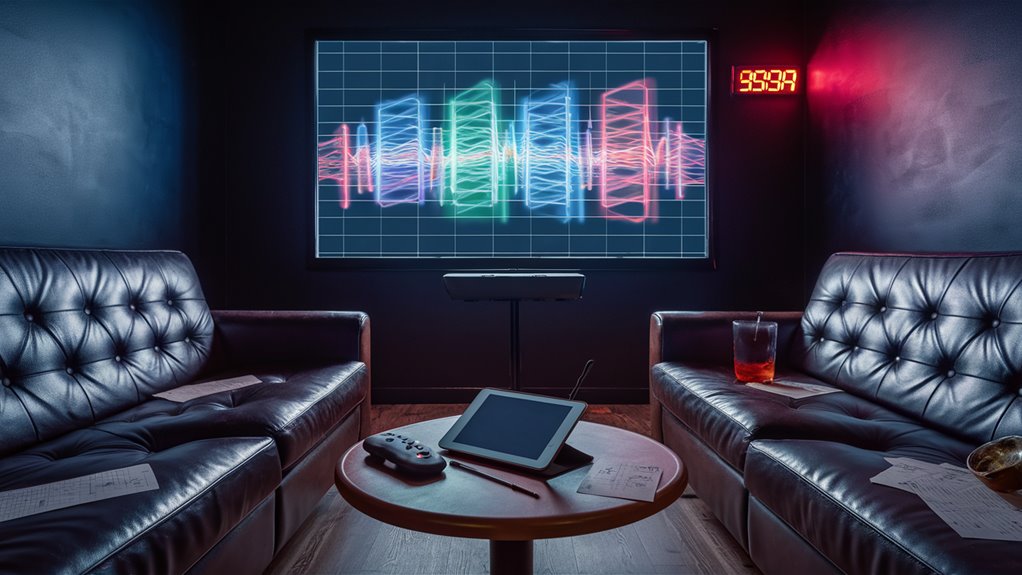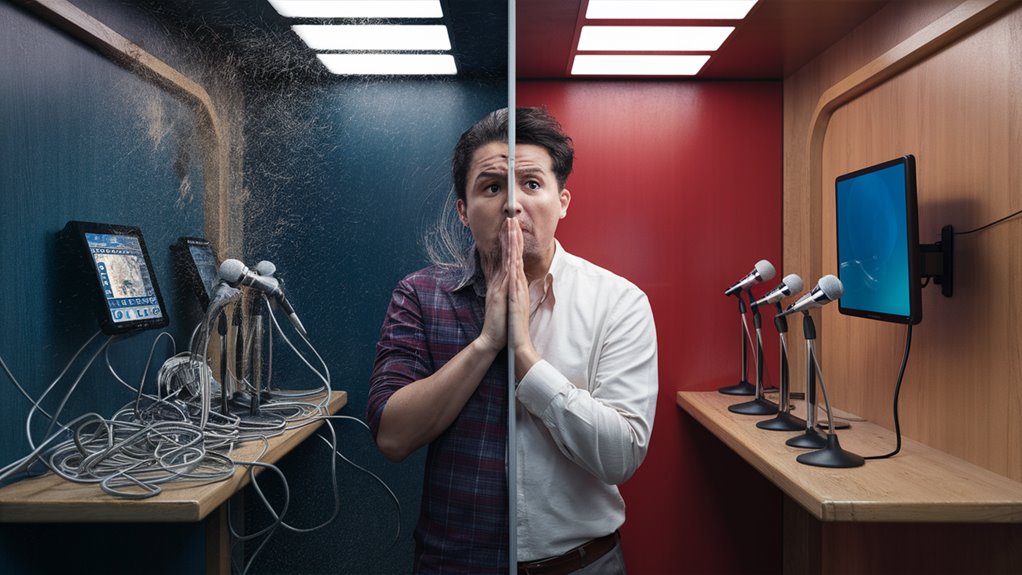A Simple Guide: Karaoke Alone vs. with a Full Team

Today’s Karaoke Styles: A Quick Look
Fun with karaoke now comes in two ways: do-it-yourself (DIY) and full-service places. Both have good and bad points for those who want to sing alone or with friends.
Why Choose DIY Karaoke?
You’re in Control and Solo
Latest karaoke tech lets you pick your songs, set sounds, and change the mood. Private rooms mean singing just with your crew, no outsiders.
Save Cash
DIY spots often cost less as they save on Use the System daily stuff. This means more money for you. Easy bookings cut out extra fees too.
The Good Stuff About Full-Service Karaoke
Premium Experience
Pro karaoke hosts create the vibe, manage the song list, and keep the energy high. They know their stuff, so all sound amazing.
Support and Tips
Help is here for any sound issues, song choices, or tech problems. This is great for new karaoke singers.
Choosing the Right Karaoke Option for You
Choosing between DIY setups and classic karaoke places depends on how much control, support, and atmosphere you want. Knowing this helps you or your group make the best choice.
Price Differences in Karaoke Types
How Karaoke Costs Vary
Different karaoke spots have different prices.
For example, DIY karaoke is 30-50% cheaper than full-service because they cut costs on staff.
Common Prices
- $25-35 per hour for small rooms at DIY spots
- $40-60 per hour for similar rooms at full-service places
- Extra fees during busy times at full-service places
- DIY spots keep same prices all day
Extra Costs to Think About
What You Get in Full-Service
- They take song requests
- Quick help when needed
- Serve drinks and snacks to you
- Care for the equipment
Different Costs at DIY
- Extra charges for help
- Fees to fix or change equipment
- Less spending on food
- Assistance with setup
Control and Choices in Karaoke Equipment
Having Your Own Karaoke Setup
What You Do with DIY Equipment
New DIY equipment offers a lot of control, letting users shape their singing time.
Easy touchscreens give quick guides to a huge song list, smart sound settings, and playlist choices keep your time fun.
Moving and Handling Your System
Digital karaoke spots play songs right away, cutting down waits. Search tech helps find songs fast.
Getting It Right for You
Pro karaoke equipment uses similar tech, which helps beginners.
Adjustments include:
- Echo tweaks
- Pitch changes
- Speed adjustments
- Key shifts
- Sound mixing
Song Choices and Waiting Times
Skipping the Line with DIY

Fast song handling cuts waits at karaoke, especially during busy times.
Better Ways to Pick Songs
The large song list makes choosing simple with features like:
- Search by tags
- See songs ready to choose
- Create your own playlists
- Big music database
- New songs often
How Group Fun Changes with DIY Karaoke
DIY Karaoke and Group Fun
Refreshing Group Time
DIY karaoke equipment reshapes the usual group fun by letting them lead. This lets groups tailor their own fun.
Managing Equipment and Group Challenges
Today’s karaoke setups come with new challenges. Lacking quick staff help can stop the fun and cause delays.
Making DIY Karaoke Better
Set Clear Rules Early
Great DIY karaoke times need clear rules from the start.
This tech lets newcomers learn at their pace, greatly lifting the group’s karaoke fun.
Equipment Quality and Maintenance
Caring for Your Karaoke Equipment
Needing Good Equipment
Top-notch karaoke sets need 베트남 KTV excellent equipment to run well by themselves.
Smart Maintenance and Fixes
Smart care systems are important to keep everything working well.
Keeping Quality and Controlling Costs
Regular equipment care matters a lot for DIY karaoke places.
- Best screens
- Strong sound equipment
- Tough microphones
- Auto-fix tools
- Spare parts on hand
- Care to keep sound perfect
- Often equipment checks
- Pro cleaning
- Look for wear and tear
- Test if things work fine
- Check sound quality
- Plans for smooth operation
